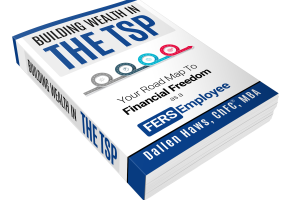Who doesn’t love a good sale? Doesn’t it just feel good to save some money knowing that we took advantage of a limited opportunity? And it turns out that I am not alone. Just last year, us Americans spent a whopping 7.4 billion dollars on black Friday alone.
Taxes Are On Sale!
During the last couple of years, we have all been enjoying a “sale” on our taxes thanks to the The Tax Cuts and Jobs Act. But the not so good news is that many of these tax breaks are set to expire in 2025. Now, could that date be extended? Definitely. It just comes down to what our federal government chooses to do over the next few years.
I have no crystal ball but I would be surprised if tax rates stayed as low as they are now. With the federal debt ever rising and underfunded programs like Social Security, these deficits will have to be filled somehow. My guess is that we as the taxpayers, will be called upon to fill these gaps one way or another.
Taxes In Retirement
So what does this mean for you as a federal employee? Great question. One of the biggest things to think about is your retirement. For FERS employees, your retirement income is generally made up of 3 different things. Your pension, Social Security, and your TSP. The vast majority of your pension is taxable in retirement and up to 85% of your Social Security is taxable as well. Most federal employees have all their retirement savings in the traditional TSP which is also 100% taxable. To summarize, federal employees are going to pay their fair share of taxes in retirement.
What brings a lot of hope to many feds is the fact that they will be in a lower tax bracket in retirement. At least they think they will. In my experience, this doesn’t happen as often as people would hope.
There are only 2 ways to be in a lower tax bracket in retirement. First, you can just have less income. But for many feds, lowering their standard of living in retirement doesn’t sound like an ideal retirement plan. Most people I talk to want to at least maintain their lifestyle if not increase it in retirement. The second option is to have tax free retirement savings (Roth TSP or Roth IRA) to keep their taxes down in retirement.
Now I am sure the comments section is already filling up with articles that say that you only need 80% of your pre-retirement income during retirement. And sometimes that is absolutely true. But just like every other blank statement, it doesn’t apply to everyone. The best thing to do is to figure out what level of income you need/want in retirement. It will be different for everyone. Some people will have a mortgage in retirement and some people won’t. Some people will want to travel the world in retirement and some people won’t. What does an ideal retirement look like for you and what type of income would it take to get there. A great place to start is to look at what expenses you have/had before retirement and ask yourself if you’d need/want more or less.
Now, the purpose of this article is not to scare everyone into starting to invest in the Roth TSP. Some feds simply make too much for that to make sense right now. My main goal is to remind us all that there is no retirement blueprint that works for everyone. Taxes are probably not going down in the future and so it is up to all of us to see what that means for our own personal situation. Retirement is an incredible time but it can be incredibly stressful if we go into it with misconceptions. And a great place to start is thinking through what a great retirement would look like for you and what it would take to get there.


